All posts by Walter Frei

Thoughts on AI and CEM43 in Medical Device Design
Let’s take a look at the synergy between AI and the COMSOL Multiphysics® software, highlighted by implementing CEM43 thermal dose calculations in the software.

Modeling Refraction with the Heat Transfer Module
The Heat Transfer Module now includes specular refraction when using the Ray Shooting approach, which is useful for solving radiative heat transfer problems involving collimated sources.

Modeling Electrical Contact Resistance at Bolted Joints
As of COMSOL® version 6.3, there is a new boundary condition that simplifies the workflow when setting up a structural mechanics problem. Explore this feature in action here.

Solving Delay Differential Equations to Model…Marmots?
As of COMSOL Multiphysics® version 6.3, it’s possible to model delay differential equations. Explore this functionality in the context of a whimsical example.

Modeling Absorption and Scattering of Collimated Light
Learn a method for simulating the absorption and scattering of collimated light, which has applications in laser heating of living tissue as well as materials processing.

Treating Time as a Space Dimension
In this blog post, explore a particularly important approach to solving the time-periodic steady state of a system that can be described by a set of algebraic equations.

Using Differential Inductance and Coils in COMSOL Multiphysics®
Differential inductances are useful for building simplified lumped models. Explore 4 examples of how to extract differential inductance in COMSOL Multiphysics® here.
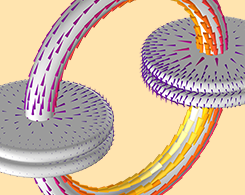
Learning from the Two-Capacitor Paradox: Do Capacitance and Inductance Exist?
What is the two-capacitor paradox? How can it be resolved with modeling and simulation? Do capacitance and inductance exist? Get answers here.
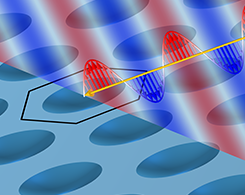
Understanding Higher-Order Diffraction
Explore how to use the Ewald sphere to study diffraction from planar periodic structures. (Interact directly with the model to get the full picture!)

Modeling Dispersion in an Electric Currents Model
As of COMSOL Multiphysics® version 6.2, new electrical dispersion modeling capabilities are available. This functionality is especially important for modeling insulators and living tissues.
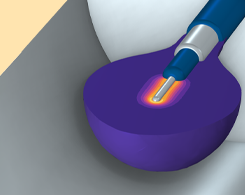
Modeling Periodic Electric Signals and Their Thermal Effects
Electrical pulse trains can be applied to human tissue for electroporation and thermal ablation. Learn how to model such signals via a Fourier transform approach.

Understanding the Transient Electromagnetic Excitation Options
Looking to model electrical signals that vary arbitrarily in time? We suggest using the Electric Currents interface. Learn why here.
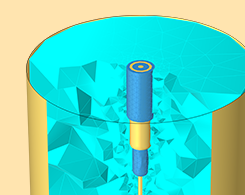
Understanding the Excitation Options for Modeling Electric Currents
Learn about the capabilities of COMSOL Multiphysics® for modeling frequency-domain electric currents in this in-depth guide.
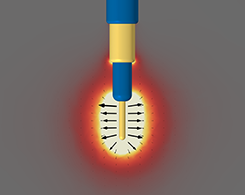
Using Different Physics Interfaces for RF Electromagnetic Heating Models
RF heating problems can be modeled with both the RF Module and the AC/DC Module. Learn more about their capabilities here.
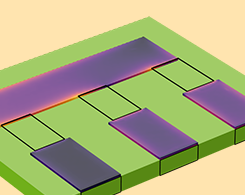
Combining Volumetric Conductor Models and Lumped Elements
With the AC/DC Module, it is possible to connect a full-fidelity volumetric conductor model to a lumped circuit element model. Learn how here.
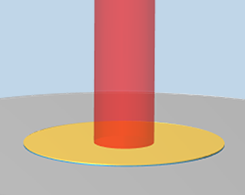
Modeling the Pulsed Laser Heating of Semitransparent Materials
Laser light is often used to rapidly heat materials within the semiconductor processing industry. Here, we explore this method with heat transfer simulation.
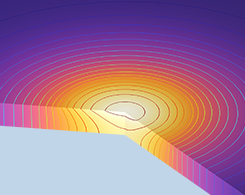
Intro to Modeling Transient Heating of Solids in COMSOL Multiphysics®
Transient heat transfer models are easy to set up and solve, but the interpretation of their results can lead to confusion. Here, we explore this scenario with a simple heat transfer model.
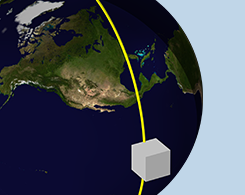
Computing Orbital Heat Loads with COMSOL Multiphysics®
As of version 6.1, the Heat Transfer Module includes a new interface for defining satellite orbit and orientation, orbital maneuvers, and varying planetary properties.
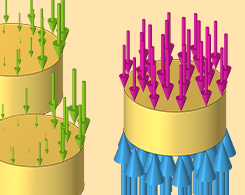
Losses in Three-Phase Transmission Lines
Explore how to model the losses in three copper wires in a linear and an equilateral arrangement.

How Large of a Model Can You Solve with COMSOL®?
Ever wonder how large of a model you can solve in COMSOL Multiphysics®? It depends on memory requirements, model size, and the dimension of your finite element problem.
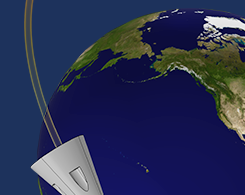
Computing and Visualizing Satellite Orbits in COMSOL®
Here, we introduce a new, out-of-this-world tutorial model of a spacecraft in orbit.
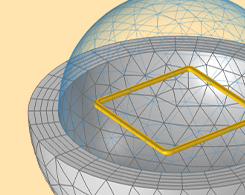
Computing and Using Partial Inductance with COMSOL®
COMSOL Multiphysics® version 6.0 brings new functionality for computing total and partial inductances and AC resistances. Get an overview here.
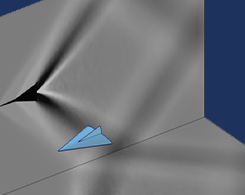
Creating Schlieren-Type Visualizations in COMSOL Multiphysics®
Did you know that Schlieren imaging might predate written history? Here, we explore this ancient imaging technique with CFD modeling.

Introduction to Computing Radiative Heat Exchange
Follow along as we continue our discussion on the foundations of radiative heat transfer modeling. (Part 3 of 3)
